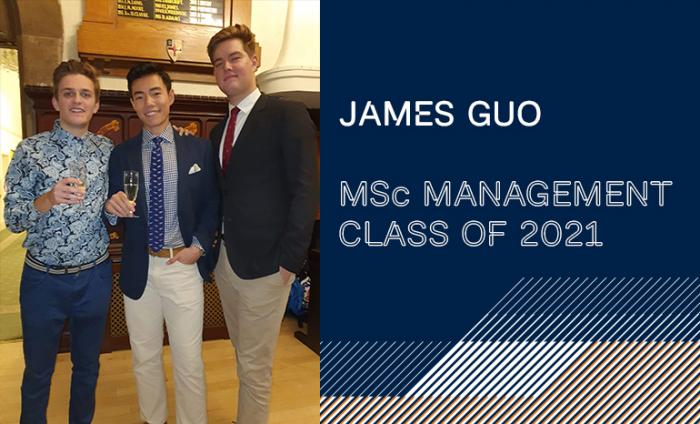
It has officially been over a year since the first COVID-19 lockdown in England. Many things have changed during this time, some were expected, and some have come as complete surprises.
Having just finished my second term of the programme, I think it is a good time for me to reflect on my experience studying a Master’s in Management during the pandemic.
Starting the programme during the pandemic has proven to be a good choice for me and I hope to provide more insights for prospective students wanting to join UCL School of Management.
Was it as valuable?
When I started preparing my application for UCL School of Management in October 2019, the news about a global pandemic had only just begun to grab people’s attention, but no one was expecting a full lockdown!
A lot of time and effort went into my Master’s applications and I also applied to a few internships on the side. Both are time-consuming, but I was fortunate enough to be accepted on to the MSc Management programme and secure an internship. I decided to start my Master’s degree in September 2020, and I had already accepted my offer when I learned that the first term would be taught online, but I decided to give it a go.
At first, it took some time to adjust to studying fully online, not only because it requires much more self-discipline, but the absence of in-person interactions also made groupwork more challenging.
It is not all negative, in fact, it has been an excellent opportunity to develop many valuable transferable skills that are highly sought after in the workplace. Connecting virtually encouraged me and my group members to explore more ways to improve collaboration and experiment with different digital tools, which has actually made idea-sharing more fluid and time-efficient.
For our investment management coursework, for example, which required us to create and present a professional level investment strategy, we were able to critically look at each others’ suggestions and spend time polishing our own proposals instead of just throwing random ideas at each other. As the result, we put together a high-quality report that was good enough for a real client meeting (from my experience as an investment banking intern), this would have been nearly impossible if people were having to spend time commuting or would have held back their criticisms when meeting in person.
This is a perfect example of the interpersonal and project management skills this programme has equipped me with. The additional digital collaboration skills are also becoming more and more sought after as firms embrace flexible working post-covid.
So yes, in my opinion, the programme has been just as valuable as if it were taught in-person!
Does it justify the costs?
Considering this from an economists point of view, the first cost is the opportunity cost, my summer internship at a large international financial services firm was converted into merely a series of online presentations, similar to the ones you would get from the likes of Coursera (they gave a certificate too), so if I had embarked on a graduate scheme instead of a Master’s it would have been a similar set-up and not what I was looking for.
If I would have decided not to start the programme, my alternatives were reduced to either taking a gap year at home or starting an entry level job remotely, neither would have been a satisfactory learning experience.
The MSc Management programme not only offered me the opportunity to develop my knowledge and skills, but it also has lower opportunity costs (the cost of giving up your second-best choice, in this case a remote job, which does not pay well either).
The second cost is the associated cost, for that I mean the money I have saved compared to if the course was taught in person. If you are lucky enough to stay at home, rent is the first noticeable expense you could save when you study remotely. Personally, I am renting in central London, but I have managed to negotiate a lower rent than usual. This year has also saved me a considerable amount of money on eating out, my spending on food and drink has been reduced by 80% by simply cooking at home. Transport, although relatively minor, was another area that helped me to save during lockdown.
In my conclusion, my experience at UCL School of Management has been well worth the time and money spent. As a tip for prospective students, I highly encourage you to plan your future more carefully than ever before, consider if studying the MSc Management programme outweighs your alternative choices and, have contingency plans in place as the programme admission is fiercely competitive.
I wish all applicants the best of luck and hope you make the most out of it in these difficult times.